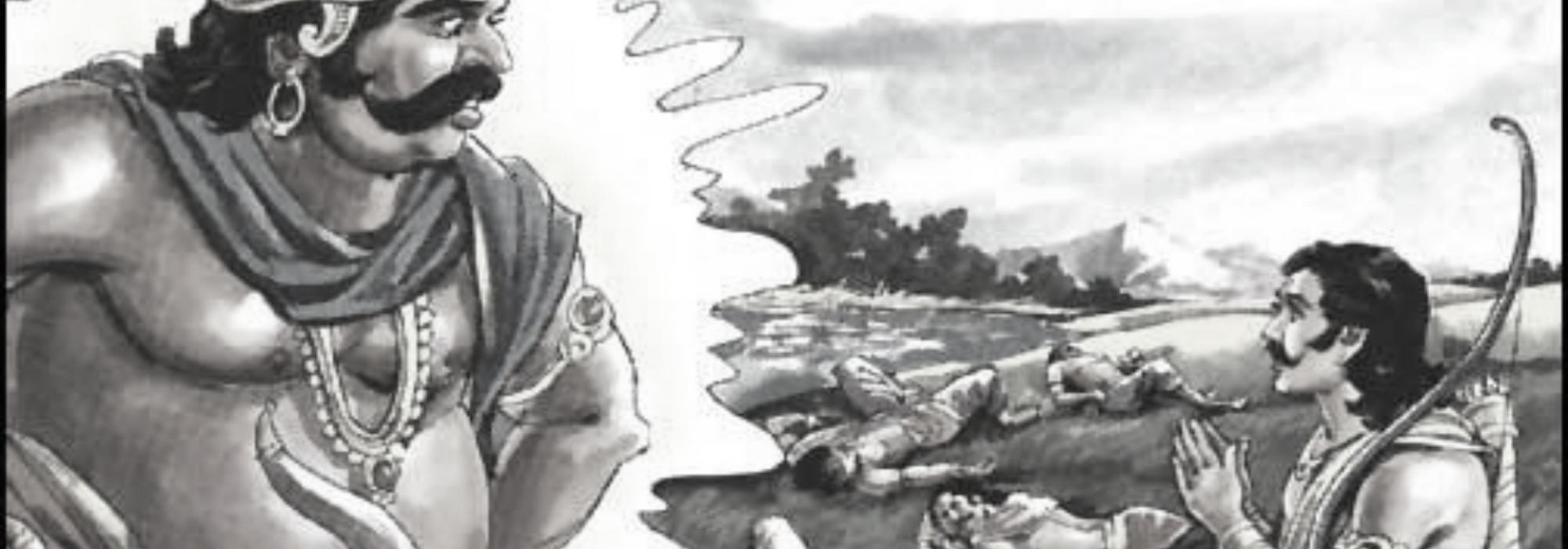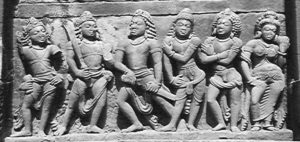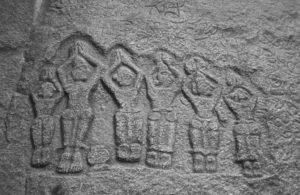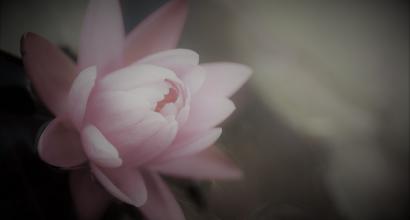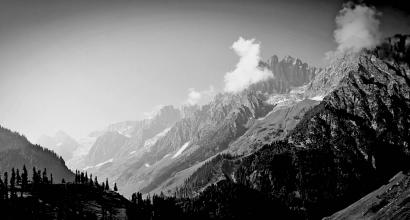This is the third part of the translation of the Yakshaprashna. With this, all the verses in the critical edition have been translated. In the fourth and concluding part of the translation we will take up all the verses from the Chitrashala edition that have not already been covered in the critical edition.
Chapter 297
Verses 63-74:
Yudhishtira
दिवं स्पृशति भूमिं च
शब्दः पुण्यस्य कर्मणः ।
यावत्स शब्दो भवति
तावत्पुरुष उच्यते ॥ ६३
The words of one’s good deeds
reaches heaven and spreads over the earth
As long as those words remain
he is said to be a man
तुल्ये प्रियाप्रिये यस्य
सुखदुःखे तथैव च ।
अतीतानागते चोभे
स वै सर्वधनी नरः ॥ ६४
One who is unaffected
by pleasant and unpleasant,
sukha and duhkha, past and future,
possesses every kind of wealth
Yaksha
व्याख्यातः पुरुषो राजन्
यश्च सर्वधनी नरः ।
तस्मात्तवैको भ्रातॄणां
यमिच्छसि स जीवतु ॥ ६५
O king, you have explained who is a man
and who possesses every kind of wealth!
Thus, you can choose to bring back to life
one of your brothers
Yudhishtira
श्यामो य एष रक्ताक्षो
बृहच्छाल इवोद्गतः ।
व्यूढोरस्को महाबाहुः
नकुलो यक्ष जीवतु ॥ ६६
Then let my brother of dark colour and red eyes,
tall like a Sal tree,
with a broad chest and mighty arms;
Let Nakula, O Yaksha, come back to life
Yaksha
प्रियस्ते भीमसेनोऽयम्
अर्जुनो वः परायणम् ।
स कस्मान्नकुलं राजन्
सापत्नं जीवमिच्छसि ॥ ६७
Bhima is so dear to you
You depend so much on Arjuna
What is the reason, O king, to wish for
your step-brother Nakula’s life?
यस्य नागसहस्रेण
दश संख्येन वै बलम् ।
तुल्यं तं भीममुत्सृज्य
नकुलं जीवमिच्छसि ॥ ६८
Forsaking Bhima, the one
who has the strength that equals
ten thousand elephants,
you wish for Nakula’s life
तथैनं मनुजाः प्राहुः
भीमसेनं प्रियं तव ।
अथ केनानुभावेन
सापत्नं जीवमिच्छसि ॥ ६९
People say that
Bhimasena is dear to you
Why then do you wish for
your step-brother’s life?
यस्य बाहुबलं सर्वे
पाण्डवाः समुपाश्रिताः ।
अर्जुनं तमपाहाय
नकुलं जीवमिच्छसि ॥ ७०
Abandoning Arjuna,
whose might of arms is revered
by all the Pandavas
you wish for Nakula’s life
Yudhishtira
आनृशंस्यं परो धर्मः
परमार्थश्च मे मतम् ।
आनृशंस्यं चिकीर्षामि
नकुलो यक्ष जीवतु ॥ ७१
Magnanimity is the greatest dharma
I feel it is the greatest value
I desire to be magnanimous
Let Nakula, O Yaksha, come back to life
धर्मशीलः सदा राजा
इति मां मानवा विदुः ।
स्वधर्मान्न चलिष्यामि
नकुलो यक्ष जीवतु ॥ ७२
The king always has conduct of dharma –
this the people should know
I want to walk the path of my dharma
Let Nakula, O Yaksha, come back to life
यथा कुन्ती तथा माद्री
विशेषो नास्ति मे तयोः ।
मातृभ्यां सममिच्छामि
नकुलो यक्ष जीवतु ॥ ७३
Just as Kunti is to me, so is Madri
Both are my mothers and
I don’t want to treat them differently
Let Nakula, O Yaksha, come back to life
Yaksha
यस्य तेऽर्थाच्च कामाच्च
आनृशंस्यं परं मतम् ।
तस्मात्ते भ्रातरः सर्वे
जीवन्तु भरतर्षभ ॥ ७४
Since you value magnanimity
as greater than desire and wealth
let all your brothers come back to life,
O hero of the Bharata clan!
Chapter 298
When the Yaksha uttered these words, the fallen sons of Pandu woke up. Their hunger and thirst were gone and their senses were refreshed.
Verses 2-13:
Yudhishtira
सरस्येकेन पादेन
तिष्ठन्तमपराजितम् ।
पृच्छामि को भवान्देवो
न मे यक्षो मतो भवान् ॥ २
Standing on one leg
in the river, undefeated,
I ask: who are you? A deity?
I don’t think you’re a mere yaksha
वसूनां वा भवानेको
रुद्राणामथ वा भवान् ।
अथ वा मरुतां श्रेष्ठो
वर्जी वा त्रिदशेश्वरः ॥ ३
Are you one of the vasus
or one among the rudras?
Are you the lord of maruts
or the wielder of the Vajra, the celestial lord?
मम हि भ्रातर इमे
सहस्रशतयोधिनः ।
न तं योगं प्रपश्यामि
येन स्युर्विनिपातिताः ॥ ४
These brothers of mine, capable of
battling ten thousand warriors
I don’t see anyone
who can cause their fall
सुखं प्रतिविबुद्धानाम्
इन्द्रियाण्युपलक्षये ।
स भवान्सुहृदस्माकम्
अथ वा नः पिता भवान् ॥ ५
They have awakened with joy
and their senses are refreshed
Are you our well-wisher
or indeed, even our father?
Yama
अहं ते जनकस्तात
धर्मो मृदुपराक्रम ।
त्वां दिदृक्षुरनुप्राप्तो
विद्धि मां भरतर्षभ ॥ ६
I am your father, my son,
Lord of Dharma, endowed with gentleness and valor
I came here just to meet you,
O chief of the Bharatas!
यशः सत्यं दमः शौचम्
आर्जवं ह्रीरचापलम् ।
दानं तपो ब्रह्मचर्यम्
इत्येतास्तनवो मम ॥ ७
Fame, satya, self-restraint, cleanliness,
straightforwardness, modesty, stability,
dana, tapas, brahmacharya –
these are indeed my body
अहिंसा समता शान्तिः
तपः शौचममत्सरः ।
द्वाराण्येतानि मे विद्धि
प्रियो ह्यसि सदा मम ॥ ८
Ahimsa, balance, peace,
tapas, cleanliness, freedom from jealousy –
these are the doors to know me
You are always dear to me!
दिष्ट्या पञ्चसु रक्तोऽसि
दिष्ट्या ते षट्पदी जिता ।
द्वे पूर्वे मध्यमे द्वे च
द्वे चान्ते साम्परायिके ॥ ९
Luckily, you are fond of the five (meditation, self-restraint, etc.)
Luckily, you have conquered the six,
of which two (hunger and thirst) are connected to the early years,
two (sorrow and boredom) to middle age, and two (decay and death) to the end
धर्मोऽहमस्मि भद्रं ते
जिज्ञासुस्त्वम् इहागतः ।
आनृशंस्येन तुष्टोऽस्मि
वरं दास्यामि तेऽनघ ॥ १०
I am Dharma! Best wishes to you!
I came here to test you
I am delighted at your good conduct
I will grant you a boon, O sinless one!
वरं वृणीष्व राजेन्द्र
दाता ह्यस्मि तवानघ ।
ये हि मे पुरुषा भक्ता
न तेषामस्ति दुर्गतिः ॥ ११
O king of kings, ask for a boon
I will give it to you, O sinless one!
Those men who are devoted to me
never face distress
Yudhishtira
अरणीसहितं यस्य
मृग आदाय गच्छति ।
तस्याग्नयो न लुप्येरन्
प्रथमोऽस्तु वरो मम ॥ १२
The deer ran away
with the fire-producing sticks
May the fire in those sticks never be extinguished!
This is the first boon I ask
Dharma
अरणीसहितं तस्य
ब्राह्मणस्य हृतं मया ।
मृगवेषेण कौन्तेय
जिज्ञासार्थं तव प्रभो ॥ १३
I was the one who ran away
with the brahmana’s aranis
in the guise of a deer
just to test you!
The lord of Dharma granted Yudhishtira the boon and wished him the best. He then told him to ask for another boon.
Verse 15:
Yudhishtira
वर्षाणि द्वादशारण्ये
त्रयोदशमुपस्थितम् ।
तत्र नो नाभिजानीयुः
वसतो मनुजाः क्वचित् ॥ १५
Twelve years we have spent in the forest
The thirteenth year has come
Let no man recognize us
while we stay at some place
The revered lord of death granted him the second boon. He told Yudhistira that during their thirteenth year, nobody would recognize them. They were to spend the year in the kingdom of Virata and all the brothers could take any form they wished. He then gave Yudhishtira the fire-producing sticks of the brahmana and told him to ask for an incomparable third boon.
Verses 22-24:
Yudhishtira
देवदेवो मया दृष्टो
भवान्साक्षात्सनातनः ।
यं ददासि वरं तुष्टः
तं ग्रहीष्याम्यहं पितः ॥ २२
O eternal god of gods,
I have seen you in flesh and blood
Whatever boon you give me,
I will gladly accept, father
जयेयं लोभमोहौ च
क्रोधं चाहं सदा विभो ।
दाने तपसि सत्ये च
मनो मे सततं भवेत् ॥ २३
O lord, may I always defeat
greed, obsession, anger, ego
Let my mind be always be aligned to
dana, tapas, and satya
Dharma
उपपन्नो गुणैः सर्वैः
स्वभावेनासि पाण्डव ।
भवान्धर्मः पुनश्चैव
यथोक्तं ते भविष्यति ॥ २४
You have all these traits
by nature, O Pandava!
Anyhow, you shall attain dharma
and whatever you wish for
Having spoken these words, the revered lord of Dharma, respected by everyone, vanished from sight. The noble sons of Pandu were united once again. Feeling energized, they returned to their home and gave the fire-sticks to the brahmana.
Whoever hears this famous story of the revival of the Pandavas from death and the meeting of father and son will attain peace of mind and a long life with many children. One who takes this to heart will never find joy in malice or in treachery amidst friends or in stealing another’s wealth or in adultery or in evil thoughts.
To be concluded...

